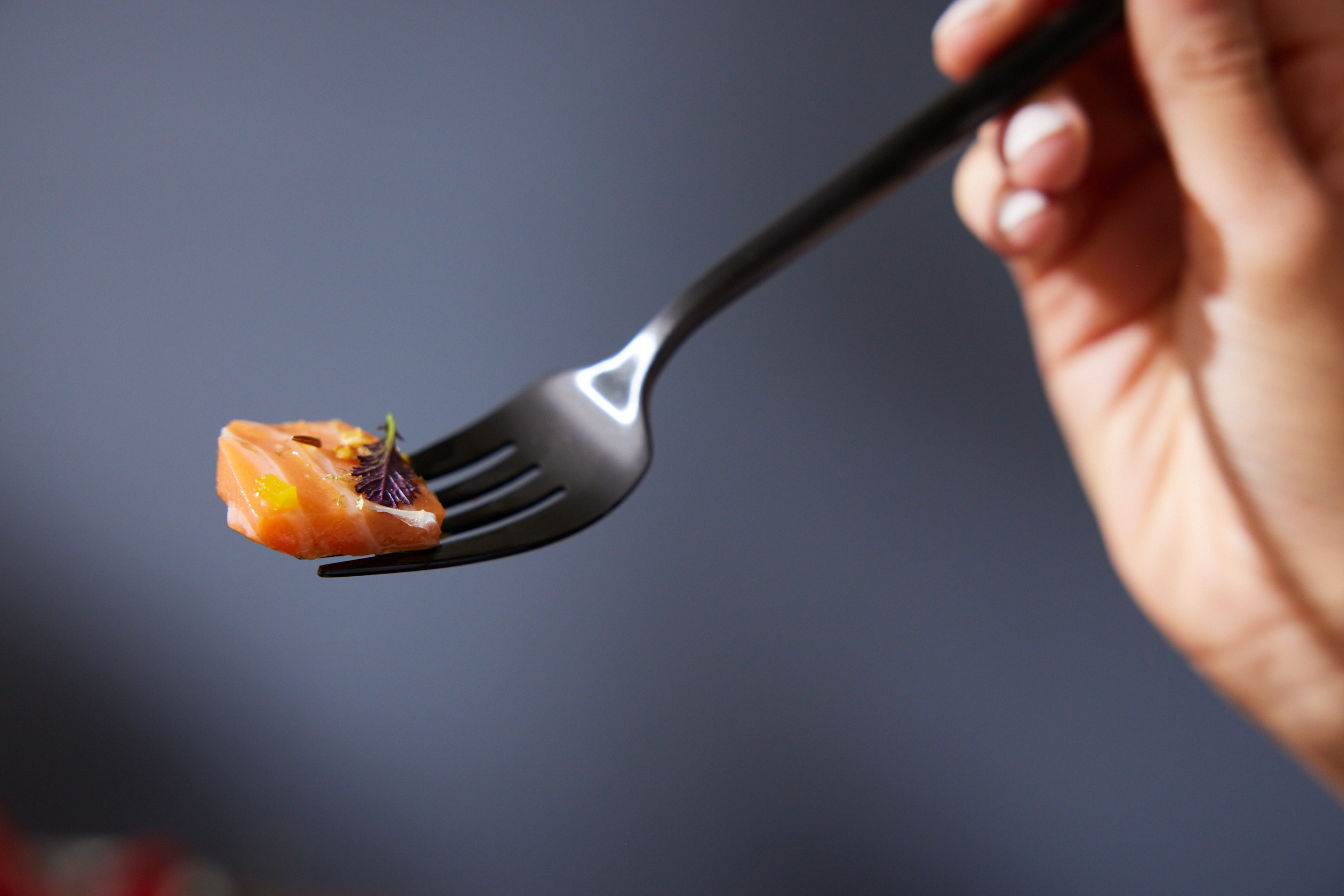Cultured salmon cells are the latest lab-grown food to pass a pre-market safety consultation by the US Food and Drug Administration (FDA). It’s the fourth cultivated meat to receive this green light and the first seafood to do so.
The product comes from Californian start-up Wildtype, which has spent years working on a way to commercially cultivate the tissues of coho salmon (Oncorhynchus kisutch) for human dinner plates.
After receiving a safety assessment and supporting materials from the company, the FDA acknowledged that Wildtype’s “cultivated salmon cell material” was as safe as comparable traditionally produced foods and does not contain harmful substances.
With the exception of catfish, cultivated seafood is regulated exclusively by the FDA, unlike chicken and beef, which undergo an additional United States Department of Agriculture (USDA) inspection, so the lab-grown salmon is already available to consumers.
Wildtype’s cultivated salmon is currently available to eat at an award-winning Haitian restaurant, Kann in Portland, Oregon, and the company is set to announce four additional restaurants in the near future.
Three other lab-grown meats have reached this same stage with the FDA: two chicken products and one made from pork. The chicken offerings, developed by Upside Foods and Good Meat, have already secured final USDA approval and are cleared for sale, but the pork variety is still awaiting its final sign-off.

Another shot of the lab-grown salmon on a fork.
Image courtesy of Wildtype
Lab-grown meat is real meat (depending on how you define “real”) that’s grown from animal cells in a controlled lab environment – no slaughter or factory farms required. It starts with a small sample of animal stem cells that are kept under lab conditions in a bioreactor, allowing them to reproduce and grow into a tissue that closely resembles the animal’s natural muscle and/or fat tissue.
In the case of Wildtype, this process started with a stem cell taken from a single coho salmon back in 2018.
“Once you have a cell line like that, then there was work involved to figure out how to feed those cells in a way that keeps them in that healthy growing state. So, we needed to come up with a mix of vitamins and minerals, carbohydrates, proteins and fats in a cell feed that was tuned to these fish cells, which was no trivial matter, because there’s very little primary research done on fish cell culture,” Justin Kolbeck, the co-founder and CEO of Wildtype, told Technology Networks in 2024.
“Nobody’s ever written a scientific paper about this,” Kolbeck added. “There’s no starting point. You just have to do the work and test different combinations.”
On their website, Wildtype explains that their motivation for developing lab-grown salmon is to address the mounting environmental threats to ocean health, specifically overfishing, pollution, and warming waters pushing wild fish toward extinction.
Since the products are derived from a single harvested fish, Wildtype’s approach avoids the need for repeated animal slaughter and carries a distinct ethical edge. A recent scientific study underscores this point, revealing that fish can endure up to 10 minutes of intense pain before dying in commercial fishing operations.
However, the idea of lab-grown meat is not to everyone’s tastes. A poll in 2024 found that 33 percent of people in the US were not willing to even try cultivated chicken, suggesting many consumers have a strong distrust of the unknown when it comes to food.
Even beyond flavor and people’s sense of ickiness, there are environmental concerns around lab-grown meat. Some research has suggested that large-scale cultivated meat production could release between four and 25 times more greenhouse gas emissions than the global beef industry.
The topic of cultivated meat has also become a hot-button topic for politicians, particularly from the Republican camp, who fear that lab-grown animal products are unnatural and could undermine traditional farming. In the past few years, at least eight states – Nebraska, Montana, Indiana, Mississippi, Alabama, Florida, Texas, and Wyoming – have already attempted to issue statewide bans on lab-grown meat.
Whether lab-grown salmon sinks or swims in the market remains to be seen, but it’s evident that cultivated meat is undoubtedly having a moment.
Source Link: Lab-Grown Salmon Receives FDA Approval In The US, The First Cultivated Seafood To Do So